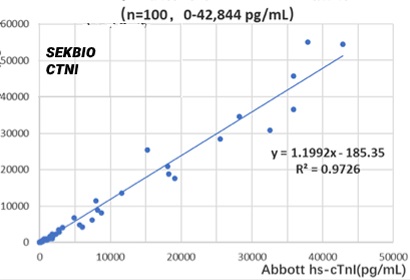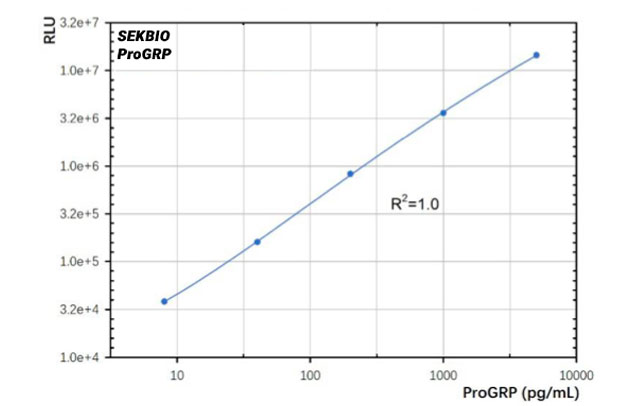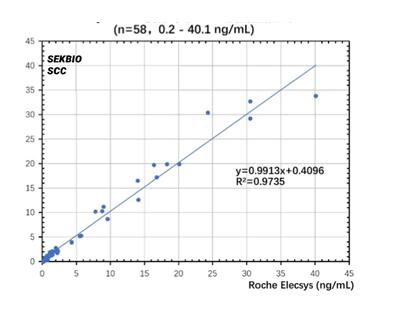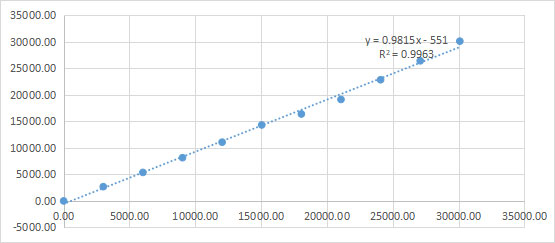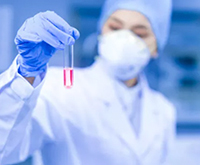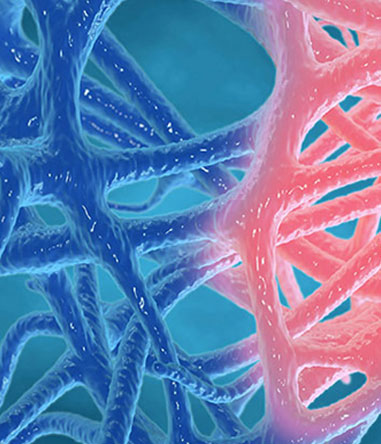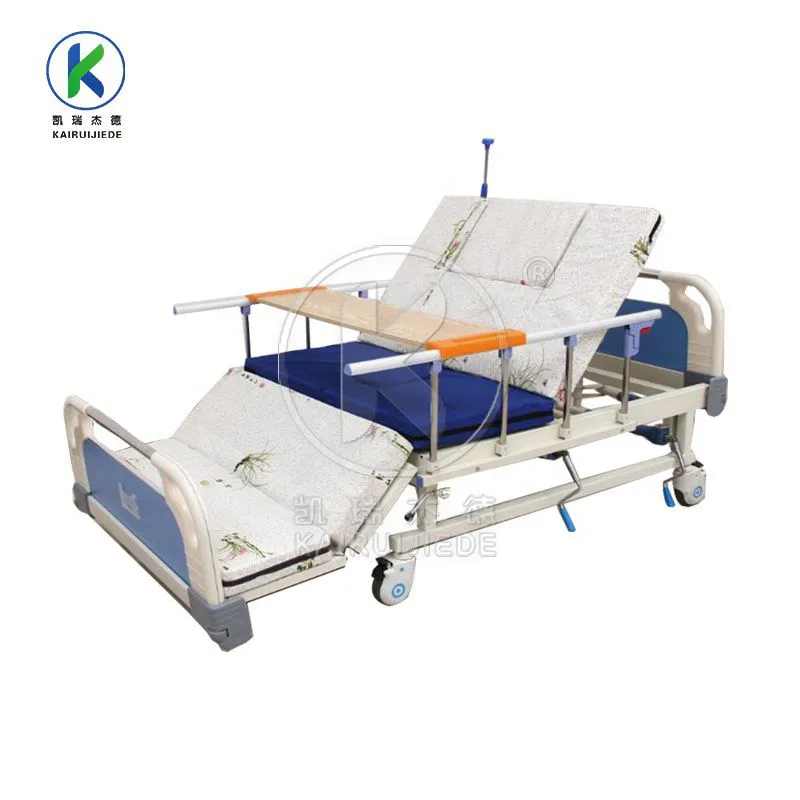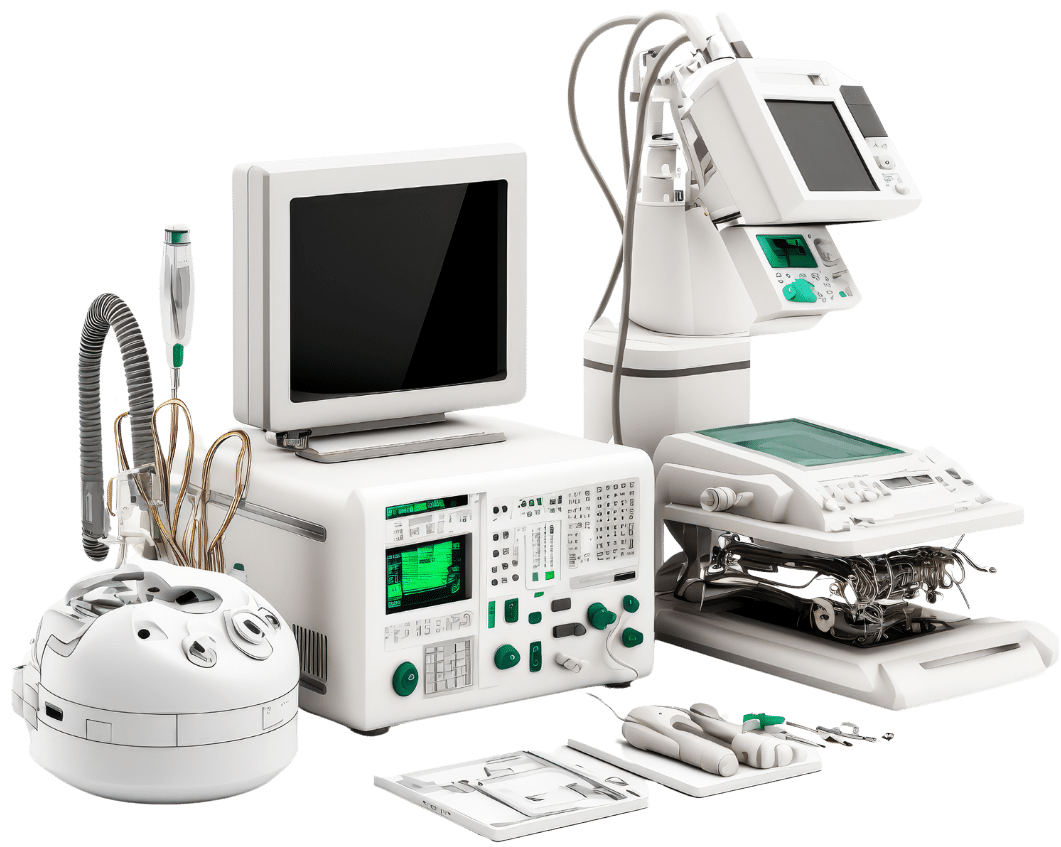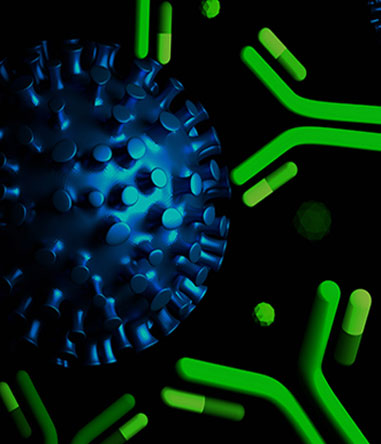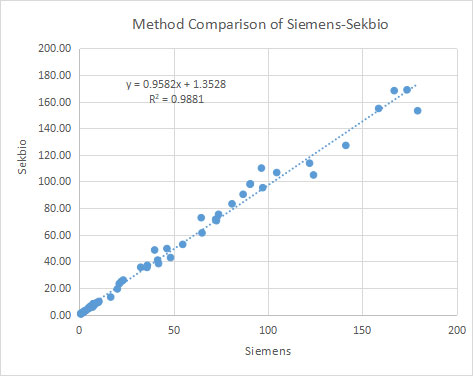Cardiac Troponin I (cTnI)
Cardiac troponin I, often denoted as cTnI, is presented in cardiac muscle tissue by a single isoform with a molecular weight of 23.9 kDa. Cardiac troponin I proteinconsists of 209 amino acid residues. The theoretical pI of cTnI is 9.05. cTnI is more sensitive and specific in diagnosing myocardial infarction.
Phosphorylation of ctni antibodychanges the conformation of the protein and modifies its interaction with other troponins and the interaction with anti-TnI antibodies. These changes alter the myofilament response to calcium and are of interest in targeting heart failure. Multiple reaction monitoring of human cTnI has revealed 14 phosphorylation sites, and the pattern of phosphorylation observed in these sites changed in response to disease.
Measuring cardiac biomarkers can be a step toward making a diagnosis for a condition. Whereas cardiac imaging often confirms a diagnosis, more straightforward and less expensive cardiac markers test can advise a physician whether more complicated or invasive procedures are warranted. In many cases, medical societies recommend doctors to make biomarker measurements an initial testing strategy, especially for patients at low risk of cardiac death.
Troponin Protein
Troponin (Tn) is a regulatory protein of muscle tissue contraction. It is located on the thin filaments of contractile proteins and plays an essential role in regulating muscle contraction and relaxation. Troponin protein contains three subtypes: fast response type and slow response type, and cardiac troponin (cTn). The first two are related to skeletal muscle. At the same time, cardiac troponin exists only in cardiomyocytes and is composed of three subunits: troponin T (cTnT), troponin I (cTnI), and troponin C (cTnC). composed of complexes. cTnT and cTnI are specific antigens of cardiomyocytes. The molecular weight of cTnI is about 23.88 KDa, which is degraded from myocardial fibers when cardiomyocytes are injured. The increase in serum cTn reflects myocardial cell damage, and its specificity and sensitivity are higher than those of the previously used myocardial enzyme spectrum.
Troponin Antibody
The presence of cTnI-specific autoantibodies in some patients' blood makes detecting the antigen very difficult.
More and more scientists at home and abroad have studied troponin autoantibodies in recent years. Different studies have shown that the detection rate of troponin autoantibodies in people without underlying cardiac diseases is about 5%. In comparison, the detection rate of troponin autoantibodies at initial diagnosis in patients with cardiac diseases (including myocarditis myocardial infarction) is between 9-16%. It reaches more than 21% in the follow-up process or patients with reinfarction. And the detection rate of cTnI autoantibodies is further improved, and the concentration of cTnI autoantibodies is significantly increased. The most probable cause of this phenomenon is the sudden myocardial infarction of the patient, which substantially increases the cTnI released into the blood circulation, stimulates the immune system to produce a robust immune memory response, and causes a significant increase in the level and affinity of cTnI autoantibodies.
As a professional hormone antibody factory, SEKBIOhas high-quality hormone antibodyfor sale. Welcome to contact us if needed.
Send product request
Other supplier products
| Mouse Anti-human ProGRP mAb | Pprogrp antibody Name: Mouse anti-human ProGRP mAb Catalog No.: ZLA116-1M Description: Mouse mAb Epitope: 48-52 As a professional tumor marker... | |
| Squamous Cell Carcinoma (SCC) | Squamous cell carcinoma (SCC Tumor Marker) antigen is a 48kDa glycoprotein initially isolated from a squamous cancer of the uterine cervix. Immuno... | |
| N-terminal Pro B Type Natriuretic Peptide (NT-proBNP) | NT-proBNP is a product released under the pressure load of the heart, and its level can reflect the myocardial function and damage degree, which is... | |
| Thyroid Peroxidase (TPO) | Thy peroxidase(TPO), also called thyroperoxidase or thyroid peroxidase igg, catalyzes the iodization of thyroglobulin tyrosine during the biosynthe... | |
| Inflammatory Marker | Inflammatory cytokines refer to various cytokines involved in the inflammatory response. And the inflammatory markers can identify the severity and... |
Same products
| Manual nursing bed | Seller: Hebei Jiede medical equipment Co., Ltd. | At Hebei Jiede Medical Equipment Co., Ltd., we specialize in providing top-quality manual n... | |
| Heavy-Duty Wheelchair Series | Seller: Hebei Jiede medical equipment Co., Ltd. | Why Choose JD-L Wheelchairs? Solve 5 Major Pain Points Low MOQ & Fast Delivery MO... | |
| medical equipment | Seller: O&K GROUP LIMITED | Okwishing supplies all kinds of medical equipment Okwishing () is a cross-border e-commerce platf... | |
| Creatine Kinase-MB (CKMB) | Seller: Shenzhen SEKBIO Co., Ltd | Creatine kinase isoenzymes are an enzyme component, among which MB type is mainly present in myoc... | |
| C-Reaction Protein (CRP) | Seller: Shenzhen SEKBIO Co., Ltd | C-reactive protein (CRP) refers to several proteins (acute proteins) that rise sharply in blood p... |





